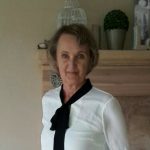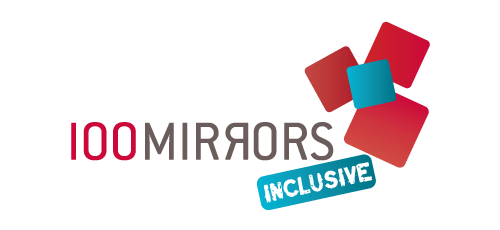
- Ņina Meņģele
- About Me
- My Background
- My Experience
- My Skills
- Hints & Tips
Name Surname: Ņina Meņģele
Country: Latvia
City: Riga
Nationality: Latvian
Sector: Non-governmental or Third sector
Position: Member of the board in organization for people with disabilities 'Apeiron' cooperation partner in 2 projects coordinated by charity organization Ziedot.lv
More than 20 years Ņina Meņģele actively participates in NGO sector. She is member of the board in organization for people with disabilities 'Apeirons'. One of Ņina's colleague admits - 'Ņina is the soul of this organization and she supports all volunteers by giving them advice!' And not without a cause! Hard work, sincerity and willingness to help people have resulted in success thus significantly improving people with disabilities daily lives. Since 2008, Ņina also cooperates with charity organization Ziedot.lv.
http://www.apeirons.lv/new/ https://www.ziedot.lv/
Education: University 'Development', unfinished (I left it after 6th semester);
Continuing professional education (in organization)
Career pattern:
From 1999 – now member of the board in organization for disabled people and their friends 'Apeirons' (Riga, Latvia);
From 1999 – 2008 client support specialist: consultations, providing information and support via email, phone and face-to-face meetings, solving different crisis situations;
From May, 2005 – April, 2006 – assistant in project 'Back to work'. Promoting employment of parents of disabled children;
From February, 2005 – September, 2005 – Informative free-telephone centre manager;
From 2008 – in cooperation with charity organization ziedot.lv I’ve been project manager to 2 projects – 'Dear nanny' and 'For the little hearts!';
From 2007 – 2009 state coordinator for international project 'Laterna Nordic' and 'Laterna Nordic 2' (Sweden, Lithuania, Belarus, Finland, Denmark, Russia, Latvia);
Since 2010 – project manager and office administrator in organization for people with disabilities and their friends 'Apeirons'.
Back in the 1999 there was very little information for people with disabilities about their rights and solving various problems. On the basis of this problem, the idea was to create an 'Independent Living Centre', where information on people with disabilities could be readily available on a variety of issues which may interest them. People, both on-site and telephone, could receive accurate information about regulations issued by the state and local governments, which would apply to people with disabilities, which would improve their quality of life. In cooperation with the Human Rights Office, we also had consultations provided by a lawyer. In Latvia, people with disabilities and people without disabilities were not in the same situation, for example, people with disabilities in the wheelchair were 100% incapacitated by the Health Inspectorate of Latvia decision, but in fact the disabled people were not provided by the opportunity to study and work, and the physical environment was also not provided, thus it gave a reason for several areas of activity in which the organization worked to be developed.
Work in the non-governmental sector is based on the implementation of projects, the threat is caused by the lack of state and local government support.
The only obstacles were the feeling of insecurity. After becoming ill, I was unsure about my abilities and skills. For those years (the end of 90s) the organization 'Apeirons' was very progressive and creative, and many projects were implemented for the first time in Latvia and as much as I wanted to be involved with it all, I was forced to keep up with the rest of my colleagues.
I was helped by a sound organizational leader who encouraged and motivated me to have creative thinking and empowered me to act freely within organization. Very democratic leadership style, supportive and friendly team. Most of all, I was inspired by our cooperation partners from several organizations from European countries such as Sweden, Denmark, Finland, etc. and it was an example of what to try and offer to our state and municipal institutions regarding problem solving opportunities. The organization's table book was a UN model rule for how legislation for people with disabilities should be organized in the country.
The organization needs to evolve and go forward, so we are doing everything together, trying to maintain it. I will definitely say that the team is supportive. And of course, the family - all the families of the 'Apeirons' members are already involved, including my grandchildren.
Another of our directions is the availability of the environment. Initially, it seemed that this direction was so complicated that from the very beginning we thought that hardly any non-governmental organization would do this - but we had the strength and it resulted in an accessible environment!
I think that the first and most important skill is the communication – communicate not only with specific individual but to be able to communicate with the whole sector of NGO. I’ve been volunteer coordinator since 1999 and currently managing volunteer movement within organization.
I have graduated from the NGO Leadership School.
I have business skills, experience in organizing records and archives, I work daily with clients who visit the organization, I have mastered crisis intervention skills. I have good computer skills since 1998 and good language skills - Latvian, Russian, English. I am a multi-project coordinator; therefore I have skills necessary to project writing. In collaboration with charity organization 'Ziedot.lv' I am leading two projects – 'Dear Nanny' and 'For the little hearts'.
There are so much things achieved and done. We have highly developed communication and co-operation skill on many levels – not only with other NGO’s. You can say that our motto is – 'We offer solution instead of confrontation!' Same goes for municipalities, for example, we go and say that we know how to do that but how do we co-operate in order to achieve that? For example, in the context of assistant for people with disabilities system, we have written countless projects while thinking what is best for people. We have worked together with colleagues from Finland, Sweden and Denmark, observed how they are solving this.
Each of us have their own path in life, it is hard to give a specific advice. When I got ill, I spent whole year at home, crying. I felt pity towards myself and though, oh, God, how unhappy I am now that I’m ill, once I could do that and now I can’t. So, with the support of my husband, I got myself involved in NGO. Back then, most of the NGO’s were very formal.
I started doing something, I met people, I welcomed new members, managed office duties and then I saw that there are other people. When there is a crisis in person’s life, he doesn’t see anything around him, everything’s in dark colors. When I saw that there are other people with disabilities, I realized that things aren’t so bad and I could actually be useful to other people as well – even if it’s only listening to them, giving support and even hold a hand – sometimes it is so important!
Even though it’s hard to give an advice, I’d like to encourage woman. Start to study, start doing something new! Then, the horizon will open up in a whole new level! Do not pity yourself, it won’t get you anywhere.

